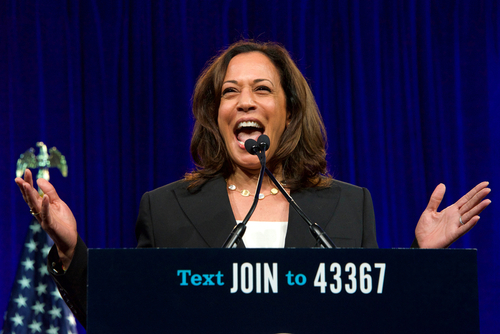Veteran Democratic strategist James Carville has cautioned his party to curb their enthusiasm, stressing that excessive elation could be detrimental as the 2024 presidential race heats up. Speaking on a podcast with Donny Deutsch, Carville expressed concerns that Democrats' current jubilance, particularly over Vice President Kamala Harris, might soon backfire if not managed properly.
Carville's remarks come at a critical juncture, with President Joe Biden's approval ratings slipping and the Democratic Party grappling with internal divisions. He emphasized that the party needs a more strategic approach to maintain its electoral prospects. "The giddy elation is not gonna be very helpful much longer," Carville warned, urging Democrats to stay focused on the broader goal of retaining the presidency.
Can we get less
James Carville and more Zerlina Maxwell giving us opinions. She's totally more intouch and accurate. Just my opinion. pic.twitter.com/BVzJTetkE2— Bud E Dog (@BudEDog1) July 25, 2024
Highlighting the potential pitfalls of overconfidence, Carville pointed out that Republicans are eagerly awaiting any missteps. He underscored the importance of appearing united and avoiding actions that could be perceived as manipulating the nomination process in favor of a specific candidate, such as Harris.
Carville argued that Democrats must present a robust, democratic selection process to counteract Republican narratives of a rigged system.
Shocker! Yesterday @JamesCarville warned Democrats to dial back the “giddy” excitement, because Trump and Republicans are going to put up a nasty fight. As if we don’t already know how dirty they’re going to get. Their racism is already out front and center.
Save the friendly… pic.twitter.com/qHYdMtFlcY
— Christopher Webb (@cwebbonline) July 26, 2024
Moreover, Carville expressed alarm over the party's waning support among minority voters, particularly Latino males. He attributed this decline to what he described as a culture of "preachy females" within the party, which he believes alienates male voters. Carville criticized the party's messaging, saying it often comes across as condescending and disconnected from the everyday lives of these voters.
Recent polling data backs up Carville's concerns. Surveys indicate that President Biden's support among Black voters has dropped significantly, with former President Donald Trump gaining ground. If these trends continue, Trump could secure a historic level of support from Black voters, further complicating the Democrats' path to victory.
Carville proposed a series of televised town halls as a solution, featuring prominent figures like former Presidents Barack Obama and Bill Clinton. These events would serve as high-stakes job interviews for potential Democratic nominees, allowing voters to see a wide range of candidates and their platforms. Carville believes this transparent approach could revitalize the party's image and generate widespread enthusiasm among the electorate.
In conclusion, while Carville's warnings might seem dire, they reflect a strategic imperative for Democrats to stay grounded and focused. His call for a more inclusive and democratic nomination process aims to bolster the party's chances in the upcoming election by fostering unity and appealing to a broader base of voters. As the political landscape evolves, Carville's insights highlight the importance of adapting strategies to meet new challenges and opportunities head-on.

